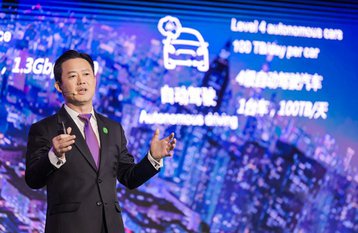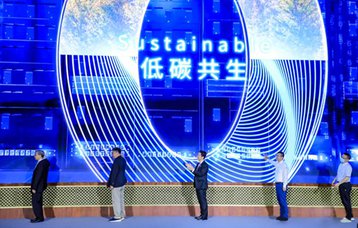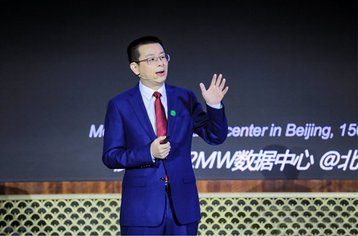Huawei has revealed what it deems ‘the definition of the next-generation data center facility’, complete with the PowerPOD 3.0, a brand-new power supply system.
The new rollouts, unveiled in Dongguan, China on May 26 are based on the collective wisdom and joint efforts of the Huawei Data Center Facility Team and industry experts, reaffirming Huawei’s commitment to building low-carbon, smart data centers.
Defining the next-generation data center facility
The facility was introduced by Charles Yang, senior vice president of Huawei and CEO of Huawei Data Center Facility Team at the launch event.
He said that technical experts and industry authorities have reached a consensus on the four characteristics of next-generation data center facilities, after extensive and in-depth discussions: sustainable, simplified, autonomous driving, and reliable.
Sustainable
Next-generation data center facilities will be fully green and energy-efficient while maximizing the recycling of all data center materials. In this way, the overall data center ecosystem will be eco-friendly and environmentally sustainable.
Sustainable data centers can be achieved by utilizing green resources – electricity, land, and water – and maximizing the recycling of used materials throughout the life cycle.
In addition to the extensively-used Power Usage Effectiveness (PUE), other indicators, including Carbon Usage Effectiveness (CUE), Water Usage Effectiveness (WUE), and Grid Usage Effectiveness (GUE), will also be used to measure data center sustainability.
Simplified
Simplified architecture, power supply, and cooling embody the evolution of the data center facility.
Simplified architecture brings innovative forms of buildings and equipment rooms. If the prefabricated modular construction mode is used to construct a 1,000-rack data center, the construction period can be reduced from more than 18 months to between six and nine months.
Simplified power supply reshapes components and links. It shortens the delivery period from two months to two weeks. Simplified cooling maximizes heat exchange efficiency by changing multiple heat exchanges to one heat exchange, and shortening the cooling link.
Autonomous driving
O&M automation, energy efficiency optimization, and operation autonomy reshape the management of data centers’ operation and maintenance.
O&M automation enables engineers to complete the inspection of 2,000 racks in five minutes remotely. The energy efficiency optimization means an optimal cooling strategy can be delivered via 1.4 million original combinations within one minute, achieving smart cooling. Operation autonomy maximizes the value of resources.
Reliable
Proactive security and secure architecture ensure high quality and sustainable development of data centers.
Proactive security means using big data and AI technologies to implement predictive maintenance from components to data centers, based on the visibility and perception of all domains in the data centers.
Automatic fault response means it will take only one minute to spot a fault, three minutes to analyze, and five minutes to recover. Secure architecture means security will be ensured at various levels, such as components, devices, and systems.
At the system level, the E2E visualizable, manageable, and controllable platform enables the system availability to reach 99.999 percent.
PowerPOD 3.0
Released by Fei Zhenfu, CTO of Huawei Data Center Facility Team at the event, the PowerPOD 3.0 is a next-generation, footprint-saving, time-saving, and energy-saving power supply system.
The system reduces the footprint by 40 percent, cuts the energy consumption by 70 percent, shortens the delivery period from two months to two weeks, and lowers the SLA fault rate by 38 percent.
In the pursuit of the next-generation data centers, technological innovation will be a key force in ensuring sustainable development.
Looking towards the future, Huawei will keep making breakthroughs in products and technologies through continuous investment in R&D and with extensive cooperation with customers, ecosystem partners, and industry organizations. We can jointly usher in a new era of data center development.
More from Huawei
-
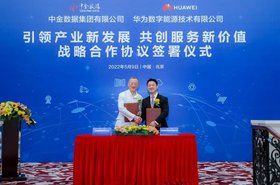
Centrin Data and Huawei partner on data centers and green energy
Companies reportedly planning two data centers in China
-
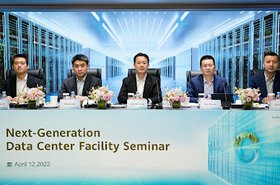
Event News Huawei: Global seminar on the next-generation data center facility
From innovative power and cooling solutions, to facility automation; defining the data center of the future
-

Sponsored Can digitalization and decarbonization go hand in hand?
Answer: Yes, but it will take some investment, argues Huawei's Ma Xuelong

